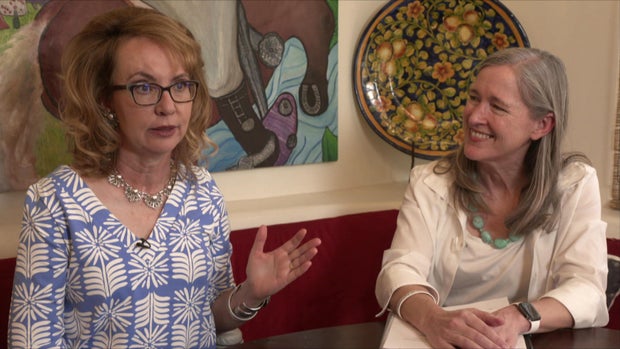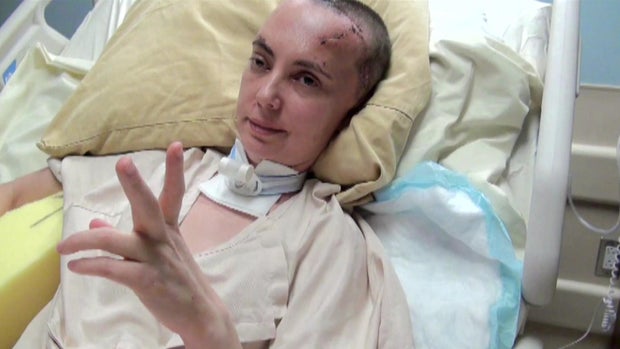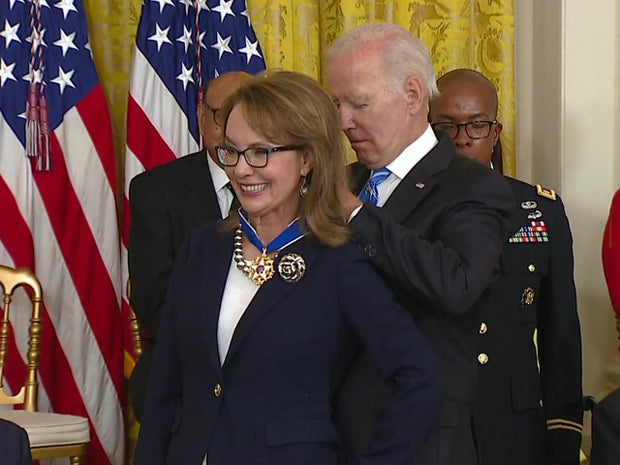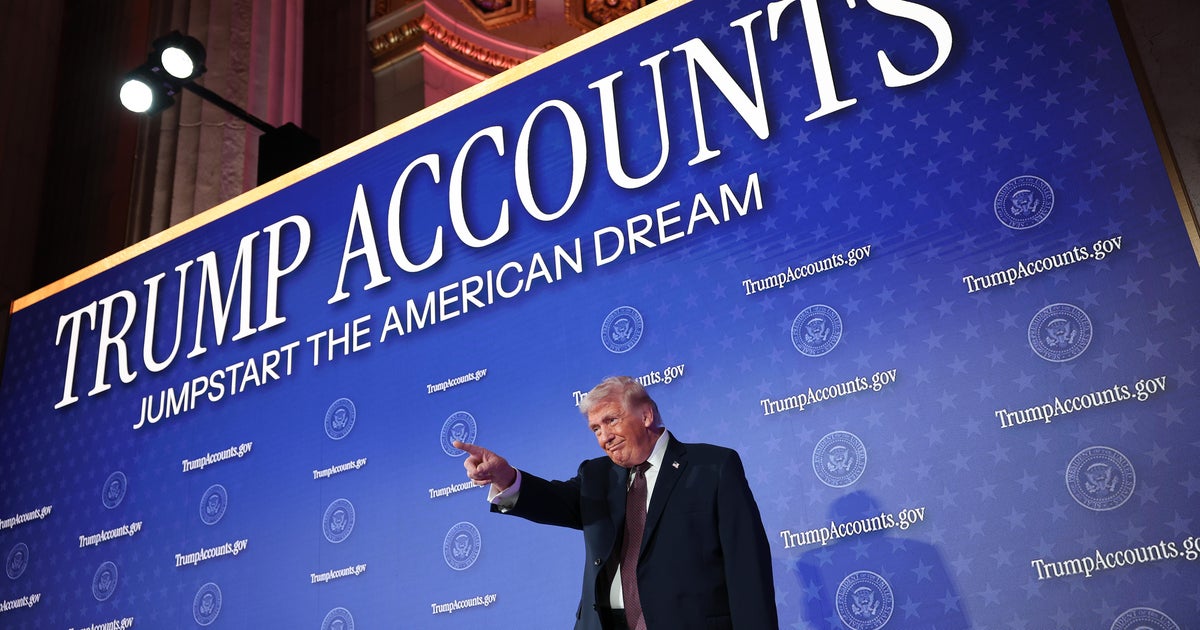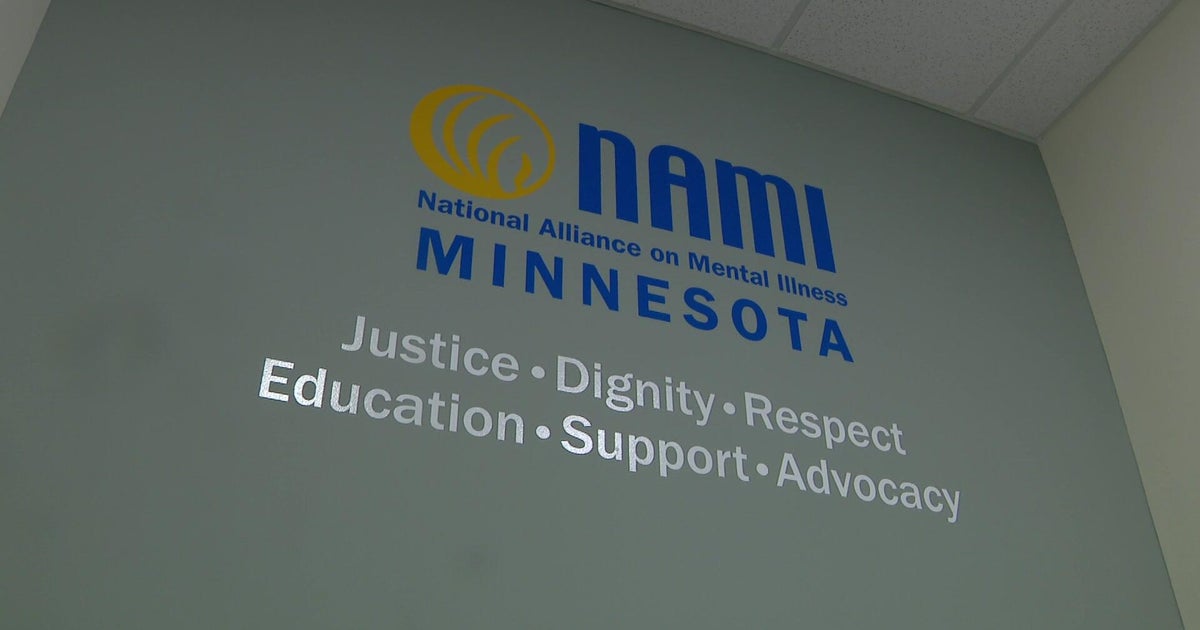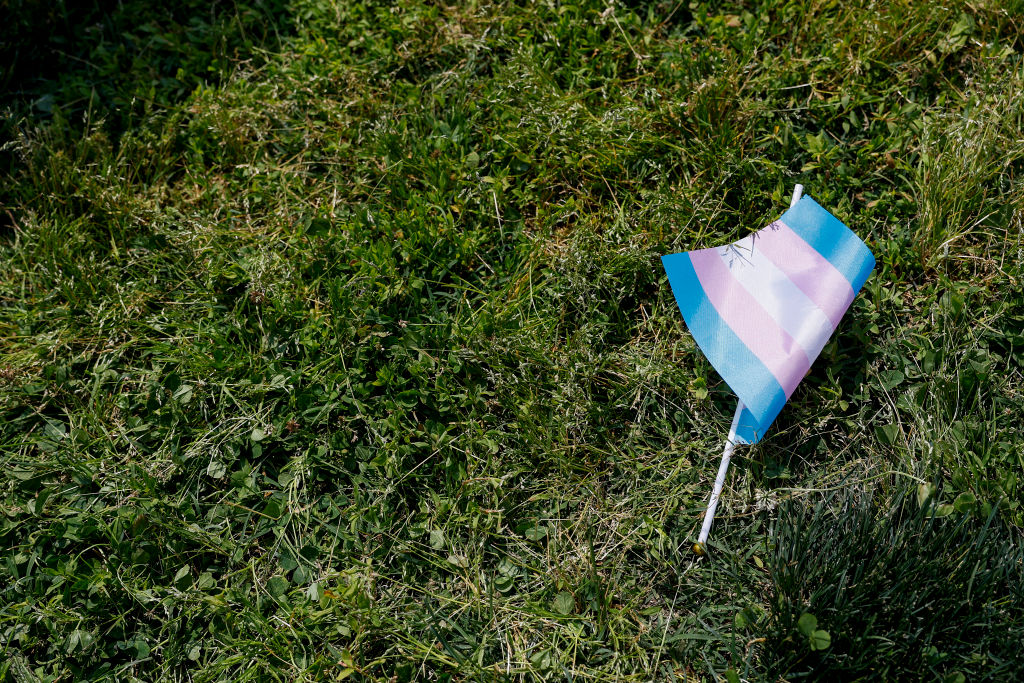Gabby Giffords and her ongoing fight
If you spend some time with Gabby Giffords you'll likely be treated to a tune or two: "Almost heaven, West Virginia. Blue Ridge Mountains, Shenandoah River," she sang.
But in her speech therapy sessions, finding her words can still be a challenge: "But the crew … but … the whole crew was fantastic."
It's due to a brain disorder known as aphasia. " 'Phasia really sucks," Giffords said. "The words are there in my brain. I just can't get them out."
And yet, she has never lost her voice, or her unyielding optimism. At a 2019 event promoting a bill requiring background checks on private gun sales, Giffords said, "My spirit is strong as ever. I'm still fighting to make the world a better place, and you can, too!"
Giffords has been fighting every day since January 8, 2011, when a gunman opened fire at her "Congress on Your Corner" event in Tucson, Arizona. Nineteen people were shot; six died. Gabby Giffords was shot in the head.
Correspondent Ben Tracy asked, "In terms of your recovery, how do you feel about where you're at?"
"I'm optimistic," she replied. "It will be a long, hard haul. But I'm optimistic."
That spirit is what made the former House Democrat a rising political star … and it now powers her push to end gun violence. Her improbable journey is at the center of a new documentary now in theaters, aptly titled, "Gabby Giffords Won't Back Down."
To watch a trailer for "Gabby Giffords Won't Back Down" click on the video player below:
"Sometimes I think the word inspired is overused," said the film's co-director Betsy West. "It's certainly appropriate to Gabby. It makes you feel like, wow, if she can do that, look at what challenges I might take on."
But West and her co-director Julie Cohen (who together previously made the 2018 documentary "RBG" about Justice Ruth Bader Ginsburg) admit they were worried whether this project would even work.
Tracy asked, "Was there any concern about her limited ability to communicate and being the subject who has to carry a documentary?"
"Yeah, absolutely," West replied.
"Big concern; is Gabby's story gonna be too depressing?" said Cohen. "But then we met Gabby. This is the most extraordinarily resilient, buoyant, adorable, hilarious, musical human being you could ever get to know."
The film shows each often frustrating step of Giffords' recovery, much of it taped by her husband, former astronaut and now Arizona Senator Mark Kelly.
Tracy asked Kelly, "What in you said, 'We should document this'?"
"The reason I did it is, when you have an injury like that, you're not gonna remember the early days of rehab and recovery," Kelly replied. "And I wanted her to be able to, you know, see what that was like."
After the shooting Giffords gave up her seat in Congress. And then, in 2020 Mark Kelly took up her mantle, running for Senate to complete the term of the late John McCain. His entry into politics has led to a surprising role reversal for the couple.
Kelly said, "I was there for her, you know, through the recovery, month after month, you know, year after year. And now, with me running for the United States Senate, you know, I've got an expert, you know, on that with a lotta great advice."
The documentary shows Gifford prompting Kelly as he rehearses a speech to be given on the Senate floor. "Slow down," she said. "Slow down."
"When I was on the floor of the Senate giving that speech, I could hear Gabby in my head saying, Slow down!" he smiled.
Tracy asked Giffords, "How do you think he's doing?"
"Fantastic," she replied.
For Giffords, gun reform remains her priority through her organization that advocates for universal background checks on gun buyers. Last month, when President Biden signed the first significant gun reform legislation in nearly three decades, that measure was not included.
Tracy asked, "Do you think that was the best you could get? And if so, is that all we should expect?"
"Well, I think there's something to be said for compromise," said Kelly. "I think our country is a better place when Republicans and Democrats can work together to solve problems. This is an issue that makes our country stand out in – "
"The worst worlds," Giffords interjected.
"Yeah, in the worst of ways. And it's something the American people want addressed. And we did this with this legislation."
"Since what happened here in Tucson, there have been so many countless mass shootings in this country," said Tracy. "Does it feel in some way as a country we've just kind of accepted that this is going to happen?"
"No," Giffords.
"We shouldn't," added Kelly. "You know, sometimes it might take us a little while to get to it. But you know, no other country on this planet is as good at solving problems as the United States of America."
"No turning back," said Giffords. "Fight, fight, fight every day."
Just a few days ago at the White House, Giffords received the Presidential Medal of Freedom for her advocacy. The proclamation read: "She turned pain into purpose as one of the most powerful voices working to end gun violence in America. Because of her, lives will be saved and America will be safer."
President Biden said, "Gabby is one of the most courageous people I have ever known."
And while it's tempting to dismiss her optimism that we will end our country's plague of gun violence as either naïve just stubborn, you then remember the long odds Gabby Giffords has already beaten.
"For me, it has been really important to move ahead, to not look back," she said. "I hope others are inspired to keep moving forward no matter what."
For more info:
- Giffords (Law Center to Prevent Gun Violence)
- "Gabby Giffords Won't Back Down," now in theaters
- Friends of Aphasia
Story produced by Dustin Stephens. Editor: Carol Ross.
